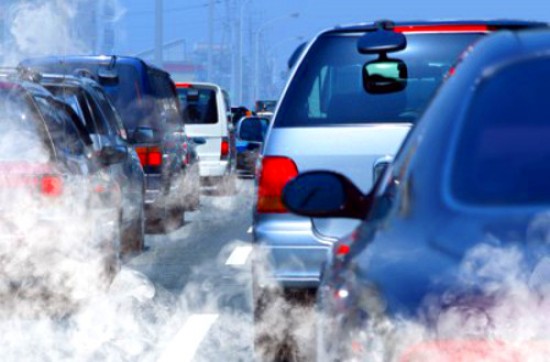Can the heavy traffic in your commute be affecting your health? No matter where you live, the quality of the air you breathe impacts you every single day.
Air pollution is the contamination of air by smoke and harmful gases; mainly oxides of carbon, sulfur, and nitrogen. Air pollution comes from many different sources, such as factories, cars, and smoke - all of which release a wide variety of pollutants affecting air quality.
Negative health effects increase as air pollution worsens. How air pollution impacts your health is determined by several factors: the length of time you are exposed, your general health and genetic makeup, and the concentration of pollutants.
People with asthma, lung and heart conditions are the most vulnerable to the affects of air pollution. Children are especially vulnerable, since their lungs are still developing. The elderly are at a higher risk as well.
What can you do to protect your health and the health of your family?
Scientist at the National Center for Atmospheric Research, Gabriele Pfister, shares the ailments caused by exposure, if you are at a greater risk for health-related effects and the lifestyle choices that you can change to help the impact of pollution on your health.
How Pollution Affects Your Health
Can the heavy traffic in your commute be affecting your health? No matter where you live, the quality of the air you breathe impacts you every day.
Additional Info
- Segment Number: 5
- Audio File: staying_well/1333sw1e.mp3
- Featured Speaker: Gabriele Pfister
- Organization: National Center for Atmospheric Research
-
Guest Bio:
 Gabriele Pfister's general research is in studying the composition of the troposphere using satellite and in-situ observations (i.e. aircraft and ground-based measurements taken during field campaigns) in conjunction with regional and global atmospheric models.
Gabriele Pfister's general research is in studying the composition of the troposphere using satellite and in-situ observations (i.e. aircraft and ground-based measurements taken during field campaigns) in conjunction with regional and global atmospheric models.
She has this to say about her work: "I am addressing the link between local pollution processes and regional and global pollution in my current work. Gases and aerosols emitted from local human activities, in addition to natural sources, might change atmospheric composition on inter-continental or even global scales coupled through mixing, transport and chemical transformation. This makes local air quality a global issue and, as further consequence, also a factor in climate change. Air quality issues are also linked to public policy applications because many of the pollutants emitted by human activity are known to have detrimental impacts on health and natural and managed ecosystems with a direct bearing on human welfare and environmental quality."
Some of Gabriele's current research topics include the intercontinental transport of pollution across the Pacific and how it impacts regional and local air quality over North America; the impacts of boreal wildfires on air quality and climate; and the role of emissions of volatile organic compounds from vegetation on atmospheric trace species such as formaldehyde or ozone. - Length (mins): 10
- Waiver Received: Yes
- Host: Melanie Cole, MS
Published in
Staying Well
